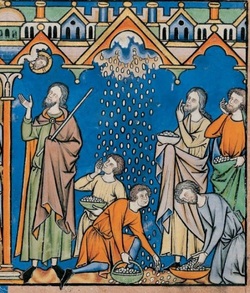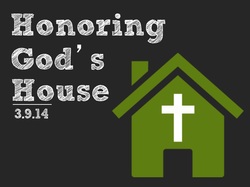
Just click to download it in Word format! Have fun!
/uploads/1/7/6/9/17696165/trinity_summer_2014_bible_reading_plans_.docx
| Steve Squires |
|
 Here is a link to a great Bible reading plan given out in church a few weeks ago. It gives you a bunch of different options for reaching - all lasting about two weeks. It's about 5-10min of reading each day, so it's very manageable. Just click to download it in Word format! Have fun! /uploads/1/7/6/9/17696165/trinity_summer_2014_bible_reading_plans_.docx
0 Comments
 So this past Sunday was the last Sunday at BrookRidge Community Church. I have served faithfully there for the past twelve years. The church was also faithful in taking care of me and my family every step of the way. We were and are a successful ministry story! I think we were all blessed to have each other as we ministered together. On June 28th I'll begin my tenure as senior pastor at Trinity Lutheran Church in Dekalb, Il. It's a great church that has a heart for discipleship and reaching out to the college community that surrounds it. Our family is excited about what God is going to do there and howe He will use us. Leaving BRCC has afforded me the opportunity to reflect on my time there and what I have learned, experience, etc. Time away can be a great gift to get perspective on a given situation. More will come to me over time, but this is what I have found so far: 1. Little things matter in ministry; people remember - Numerous times over the past month people have come up to me to thank me for interaction they had with me, prayer we shared, etc. These were little things, not a program, an initiative, or leadership development. These things are important and I'm passionate about them, but not one person has mentioned a program that inspired them. The point is that little interactions were the ones that seemed to matter the most. 2. Being faithful matters - being at a church for 12 years has its ups and downs (like anything right?). I'd like to say that it was easy the whole way, but it wasn't: for me or the church. The key wasn't ease, but faithfulness; being faithful to each other and the vision for the church that is provided by Scripture. It is a lot like a marriage: despite difficulties, no one bails, you push through the tough times. I am so appreciative of BRCC and the elders for their years of faithfulness to me. Because of faithfulness we have been able to see people grow in Christ, see the church grow and expand, and reach out to people in the community. We could have quit, but no one did. 3. The Bible matters - the spiritually correct thing to say is that the Bible matters and it's the most important book in your life if you are a Christian. We hear it all the time and I hope that it is true for people. The truth is that working in and leading a church the Scriptures are essential. Seems like a no brainer, but you'd be surprised how many pastors and churches value conferences, summits, retreats, advances, webinars, etc over the guidance of Scripture. It's not that there is anything wrong with those - I try to attend several a year. It becomes a problem when those supercede the importance and direction of Scripture. There were numerous cases in my time at BRCC that Scripture guided our ship, both by just providing us with a right approach to our situation as well direct direction on what to do (spiritual and pragmatic); especially in the area of discipline. 4. Time off matters - It took me a long time to balance out my passion for the church and personal time. At first it really didn't matter a lot (or so I thought). We didn't have kids, my wife worked full time, so we had more than enough time to give to our respective jobs; working 70 hours a week wasn't a big deal and I felt like it was necessary (at times it was). As we had kids, finished school, etc. I found that needed to get better at balancing my time. When I did this I discovered I was more valuable and could set a better tone at the church. I could show that it was important to trust God more and obsess less; I could show that it was not my church, but God's; I could show how to work smarter and not harder; I could show that my family was a priority as well as my own development. So, yeah, I think that is it for now. Since I've got time off the next two weeks I'm sure I'll post some more of my reflections.  There have been times in my life that I have wondered how God could be so faithful to me while I actively disobey His Word. A great example of this is found in Numbers 11 (click HERE to read the chapter). In this story the Israelites are complaining to God that they have nothing to eat - even saying that they were better off in Egypt as slaves! They were complaining that God was not giving them enough. God's answer was to give them manna. The Israelites continued to complain that they did not have meat to eat - again, saying they were better off in Egypt. Once again, God gives them their meat - so much that they learned not to complain! While this drama continues to unfold, God continues to take care of the Israelites by providing them with great leadership. God blesses 70 of Israel's elders to send His Spirit to in order to prophesy and "help (you) carry the burden of the people so you (Moses) won't have to carry it alone" (vs. 17). Despite Israel's rebellion, God makes sure she has proper leadership to lead her out of Sinai. There is a short lesson here: God provides for His people despite their own rebellion. For us today, we can know that as we struggle with sin God will still sustain us - even in our worst days. If you are in your worst day - take heart, trust God to provide for you. The provision is not for your glory or because you are doing anything right, it is for His glory because of  This past month we have been in a sermon series called "Honoring God's House." We've been talking about the need for disciples to honor God's house through giving to the church. This past week we talked about the practical and spiritual benefits of giving. I taught that giving is not just about giving, it's about receiving as well. Here is what I gleaned from Scripture: 1. Giving is in antidote for fear - when we trust God through giving to the church we defeat the fear that we have as we misplace our trust in our bank account. Our bank account may go up and down, but God's love for us remains constant (1 Timothy 6:17). 2. Giving strengthens our faith - When we give and trust that we will have enough our faith is strengthened. When God is faithful one time, we can trust that He will be faithful again (Malachi 3:10). 3. Giving is an investment - when we invest in the church we invest in the Kingdom of God. The Kingdom of God is expanding with the work of the Holy Spirit and our investment allows us to partner with the Spirit and be a part of the Kingdom; it is an investment with great returns. We are commanded to invest in the Kingdom of God (1 Timothy 6:18-19). 4. Giving draws me closer to God - When we give we are exercising a communicable attribute of God - generosity. We are more like God when we act like God; when we allow the fruits of the Spirit to act in our lives (Matthew 19:24-27). So as we give to God through the church we receive these things along the way!  I drive to work everyday from Hampstead on rt. 121. When you drive a road as often as I do you learn all of the curves and bumps - I'm sure you've had the same experience. Another thing I learn is where the sun will be relative to the direction of my car. In other words, I learn the spots on my journey where I will be blinded by the light as a drive. There are only a few choices available to me. First, I can turn around the car and return home - not likely. Second, I can come to a stop until the sun has moved - that's dangerous. Lastly, I can trust what I know about the road, despite mI have to trust that the road is there, even when I am not able to see it - the same curves that were there yesterday are there today. Throughout our lives each one of us will be blinded by some difficulty or challenge: anger, hatred, health scare, job change, etc. These situations will make it difficult to see that path that God has for us. When this happens, we need to trust that the road is still there and keep walking, driving, running, etc. God is still there with a plan regardless of what we see or don't see. This is where faith comes into - believing God is working and acting in our lives despite not seeing Him or the way He has created. No matter what gets in the way, we need to be confident that God is working to provide a path for us to accomplish the work in the Kingdom that He has planned for us. Even when you are blinded and can't see God, trust Him and believe that the Holy Spirit is working in your life.  The Elders at our church have been reading through a book called "Multipy" by Francis Chan (click HERE to buy the book). The book is a primer for both understanding the importance of growing disciples as well as how to go about taking steps to grow a disciple. Currently we are reading a chapter called "Why Study the Bible" and it has an interesting quote that I thought I would list here: "If we really believe that the Bible is the Word of God, then it should be much more than a book that we are familiar with. It out to shape every aspect of our existence. It should guide the decisions we make in life" (92). I think that most people fall into the former category - the Bible is nice and all, but does it really impact lives at a visceral level. True transformation only occurs when we allow the Scriptures to speak to our lives in every situation. Example: The Great Commandment calls us to love our neighbor as ourselves. When we read the Scripture and don't do anything about it, there is no transformation there - the Bible calls us to ACTIVELY find ways to love our neighbor: bringing coffee over, helping to shovel the driveway. Acting on the commandments of Christ is the greatest sign that we are being transformed and not just existing. Are you in existence mode or are you being transformed?  Lately I have been thinking a lot about difficulties; not the small difficulties, like the interminable time spend at the DMV, but difficulties that shake you to the core: health problems, financial problems, etc. I have noticed that we spend a lot of our time reacting to difficulties, perhaps most of our time. The ubiquitous nature of difficulties or trials begs us to ask the question - "what is the meaning of all of this?" or "what is going to come of all this?" The Bible speaks to this idea of going through trials and what we can expect when we are going through and come through the other side: 2 Consider it pure joy, my brothers and sisters, whenever you face trials of many kinds,3 because you know that the testing of your faith produces perseverance. 4 Let perseverance finish its work so that you may be mature and complete, not lacking anything. James here gives us an encouragement that goes something like this: " find some solace in your trials because you will have something come from them, you will grow in faith and learn how to persevere through trials that will come." Trials are training. Even though God doesn't cause all of your trials, He can use them to strengthen you for other conditions in your life. We have a tendency (understandably so) to try to avoid trials, but sometimes they are imposed on us. We can do two things at once: ask God to take the trial away from us and also ask for courage to go through the trial and learn something from it. It's not one or the other, it's  Today our entire church fasted and prayed over their lunch hour. It doesn't seem like a big deal (skipping one meal), but it can make a huge spiritual impact. The point of fasting is to take the focus off your physical needs and put focus on your spiritual needs. Prayer accompanies fasting as you pray for God to "feed" your spiritual needs. We don't have time or space here to go into the proofs of fasting, but suffice it to say that fasting is considered a spiritual discipline by the Bible and its authors (Isaiah 58; 1 Samuel 7:6; Acts 9:9). For my Scripture reading I read, meditated, and journaled on Luke 15,16. I love these chapters as they contain parables that express how much God loves humanity, including myself. After reading my prayers took the direction of thanking God for all He has done at our church. In 11 years throughout the growth of the church He has provided buildings that could house us and give us a home. He has blessed us with countless great memories here - Christmas and Easter celebrations, children's events, outreaches, etc. After being thankful my prayers moved to requests. The constant refrain in my prayers was for God to take something small that we offer and turn it into something big for the Kingdom of God. Oftentimes as pastor I see the negative or challenging things that we have in our community: I'm too close to the situation to see the great things that are happening. So I prayed for God to use our small things and show me how He is working to accomplish big things. I prayed for our Sunday worship that it would be not only pleasing to Him, but also that He could use it to break the hearts of those who were in attendance. I prayed for the simple things to become Kingdom impacting things; nothing is too small for God. It would be great if all BRCC would be in prayer for the little things to make a huge difference in community around us. It would be great if all BRCC had a vision for what God is doing in their life and what He could do in the future! I follow a lot of blogs on ministry, church, theology, etc. One that I follow is by a guy named Ron Edmondson (http://www.ronedmondson.com/). He has a lot of advice for pastors and church members alike. He recently wrote an article on how Christians should behave online. Here are his main points:
No soapbox -We are told to “do everything without arguing or complaining.” (Philippians 2:14) That doesn’t mean we can’t support causes we believe in, but they should be moral and Biblical issues, not personal agendas. No public bashing – Unless you’ve practiced Matthew 18 principles, and even then it would be rare, don’t address your problems with others online. It’s not helpful and never promotes peace. (Romans 12:18, Hebrews 12:14) No little jabs – We shouldn’t say things about others that may be misinterpreted as a stab against them. Guard your online tongue. (James 3). I see this especially as a passive aggressive tactic. We feel “safe” evoking insults or cuts to another person online that we would never say to their face. Encouragement – Social media can be a great way to encourage others. We shouldn’t spam with massive amounts of posts. Few appreciate the person who reshares everything they see, but most everyone likes to read an encouraging word pointed especially to them. (Ephesians 4:29) Do to others – As we’d have them do to us. We should always think before we post. Pause. Breathe. Think. Post. Ask yourself how you would be impacted by the post before you post it. (Luke 6:31) Guard against pride – We have to be careful with self-promotion and bragging about ourselves online. Granted, this is coming from one who has built an online platform online and I frequently encourage other pastors to do the same. It’s one of the best ways currently to engage people for Kingdom building. But, this is a reminder for me too. We must check our motives, guard our hearts and never allow our egos to rob glory from what God wants to do through our online presence. (Proverbs 11:2, 13:10) Not allow it to be a replacement for community – It’s easy to post “Happy birthday” or reply “Praying for you” without really doing so. We shouldn’t trade the functions of the Body for an online presence. (Acts 2:42-47, Hebrews 10:24) So as you are using Facebook, Twitter, email, blogs, etc. keep in mind that you are a Christian first and in everything you do, you represent the KIngd  I have begun reading a great book on the formation of Christian character - "Living the Life of Jesus" - you can find the book on Amazon HERE. The book is full of great stuff. I haven't finished it, so a review is not ready. That being said, here are some quotes and ideas from the book to get your mind pumping! "Abiding in Jesus is the central matter of living a dependent life. The consequences of not abiding are severe: we are cut off from divine empowerment. We can't accomplish anything of lasting value" (48). "The key question . . . is how do I want to live so that I can be who I want to be" (78). Being a disciple is not about will-power, it's about developing and living out your core beliefs about God. |
AuthorsFather, Pastor, Writer Archives
January 2023
Categories
All
|